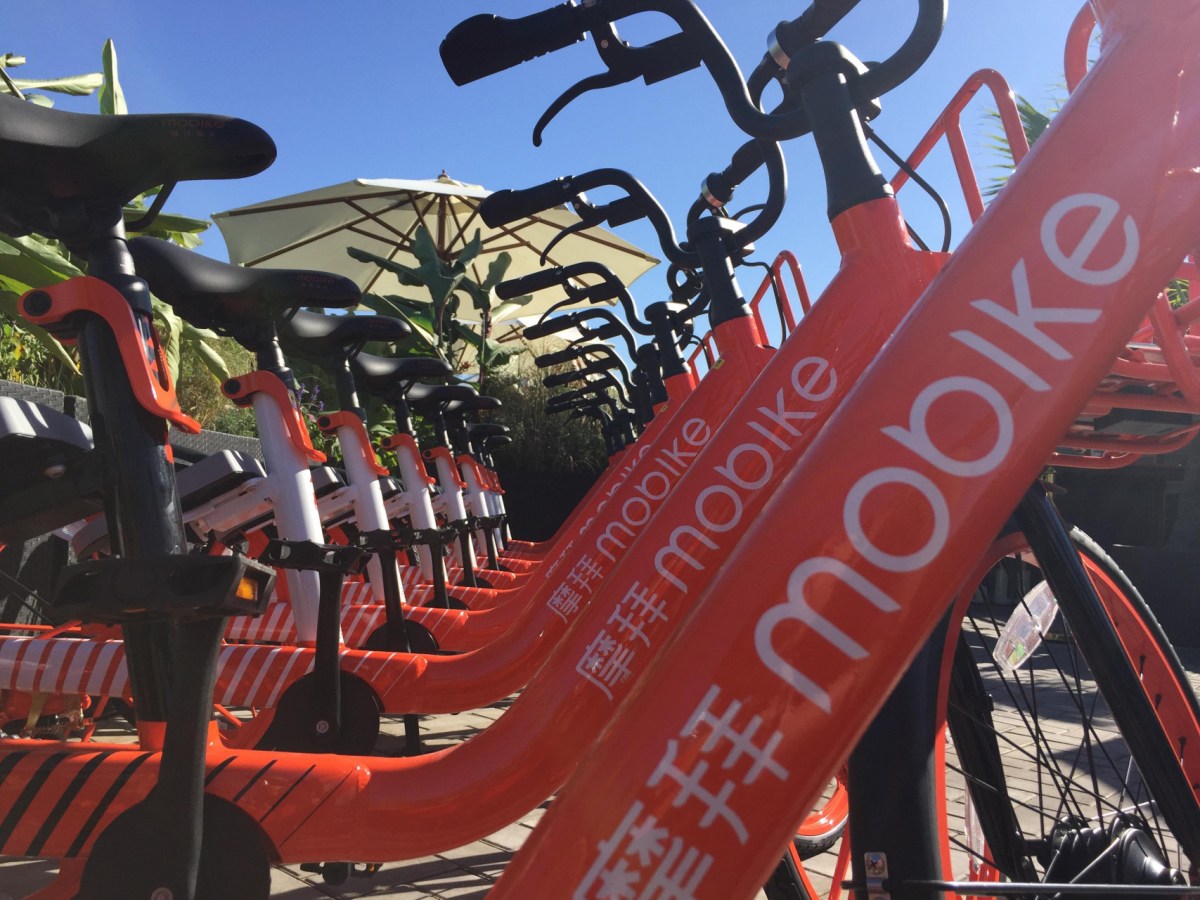TechNode has been organizing the annual “China Bang Awards” since 2011. Over the past few years, TechNode has witnessed a large number of emerging startups grow into unicorns. For the upcoming ChinaBang Awards 2018, TechNode has started a special report to review the history of China Bang Awardees.
Startups abound in a broader context of innovation. But what is a successful startup? The startups of the year for ChinaBang must be those who have changed the world
Travel is one of the most fundamental human needs. However, this need, particularly for short trips within cities, has not been well met until the advent of bike-rental. The concept of bike-rental has made it simple for everyone in cities to travel in short distances with affordable prices, and significantly improved the problem of “the last kilometer” that vexed people for so long. Those bike-rental firms have adopted innovative ideas, integrated with internet technology, redesigned their bikes and locks, and made it much easier to travel with bicycles.
In March 2017, “ChinaBang Awards”, which aims at “discovering the power of innovation in China and has been actively seeking the most promising and valued innovative projects across the country, awarded the “Startup of the Year” to Mobike. In the whole burgeoning bike-rental industry of 2016, Mobike was the best.
Mobike in 2016: Come late, grow fast
Mobike officially launched its service in Shanghai on April 22, 2016. By then, bike-rental startup ofo had been operating its business for almost a year.
In December 2016, the number of monthly active users of Mobike reached 3.135 million. Mobike took a lot of thought and care about user experience in exchange for a good reputation among users.
In 2016, Mobike had three upgrades, launching two models—the Classic Edition and the Light-Bike edition—in 23 cities across the country. According to the data from the bike-rental report, “Insights on users and future of ofo and Mobike,” the percentage of ofo users’ reporting vehicle breakdowns was significantly higher than that of Mobike, with 39.3% and 26.2% percent. The quality issue of Ofo’s first edition of bikes along with the subsequent problems caused a lot of troubles for the users.
In three months, Mobike raised four rounds of financing:
- In Aug 2016, tens of million dollars in a Series B funding joined by Panda Capital, Joy Capital, and Sinovation Ventures.
- In Aug 2016, tens of million dollars in a Series B+ funding joined by Vertex Ventures and Sinovation Ventures
- In Sep 2016, $100 million in a Series C funding joined by Warburg Pincus, Hillhouse Capital Group, and others
- Oct 2016, Series C+, Hillhouse Capital Group, Tencent Holdings, Panda Capital
Mobike in 2017: A busy year
Mobike’s success in the market and secure financing capabilities indirectly attracted more bike-rental companies to jump on the bandwagon. In the first half of 2017, bike-rental became an attention-gobbling topic. As competitors increased, Mobike had to compete with ofo while held up its market share and stymied the challenge from other competitors.
To maintain its leading role, Mobike was quite busy in 2017. In 2016, the company put a lot of efforts in improving the user experience and took its strategy further in 2017. In addition to escalating user experience, Mobike also improved its brand content and explored its market opportunities.
Regarding content operations, Mobike in 2017 focused on building its soft power. In its sprawling advertising coverage, Mobike continued to emphasize ideas such as “Bring bikes back to the city” and “Ride to change the city”, reinforcing the brand’s image among users. Also, Mobike not only released the industry’s first “Parking to Civility” proposal but also helped users to create bright parking spots for their bicycles. The use of scientific and technological methods to assist users and also reward those who park correctly
The most apparent transformations were seen in both the overseas cities—12 in total by the end of the year—and domestic small counties. Mobike has made its existence in 130 cities at home and abroad. More recently, it has also made a foray into the Korean market.
Meanwhile, Mobike, which has put considerable effort into the market, continued to receive capital in 2017, when it completed several new rounds of financing, including two consecutive Tencent investments. The E-round investment, led by Tencent, was worth up to $600 million, making it the highest amount of financing in the industry at the time.
However, at the end of November 2017, both Mobike and Ofo were revealed to be “starved of funds and have begun to divert user deposits to fill the gap.” Both companies denied the news. But it is true that in 2017, Mobike and Ofo are both burning money. To seize the market, on June 29, 2017, Mobike announced that it would send out 10 million cards for one month.
Last July, Mobike launched an RMB 2 monthly card and an RMB 5 quarterly card. One month later, Ofo started an RMB 1 monthly package for users to ride for 30 days.
The future of Mobike
By the end of 2017, the dramatic competition in the bike-rental industry was winding down.
Earlier this year, Mobike and Ofo remained while other bike-rental companies ended up being acquired, with vanishing in the air for the worst. On the one hand, Ofo recently announced that it had received $866 million in E2-1 financing from Alibaba. On the other hand, Mobike was just purchased by Meituan for $3.7 billion.
Recently, the Alibaba-backed Hellobike announced a “national no-deposit strategy” that represents a challenge to Mobike and Ofo. In response, Mobike released car-sharing businesses, and its first version of shared cars are all new energy electric vehicles. What this means is Mobike is still moving fast, and it remains to be seen what kind of surprises it can give us in the future.
—Translated by Carol Peng

